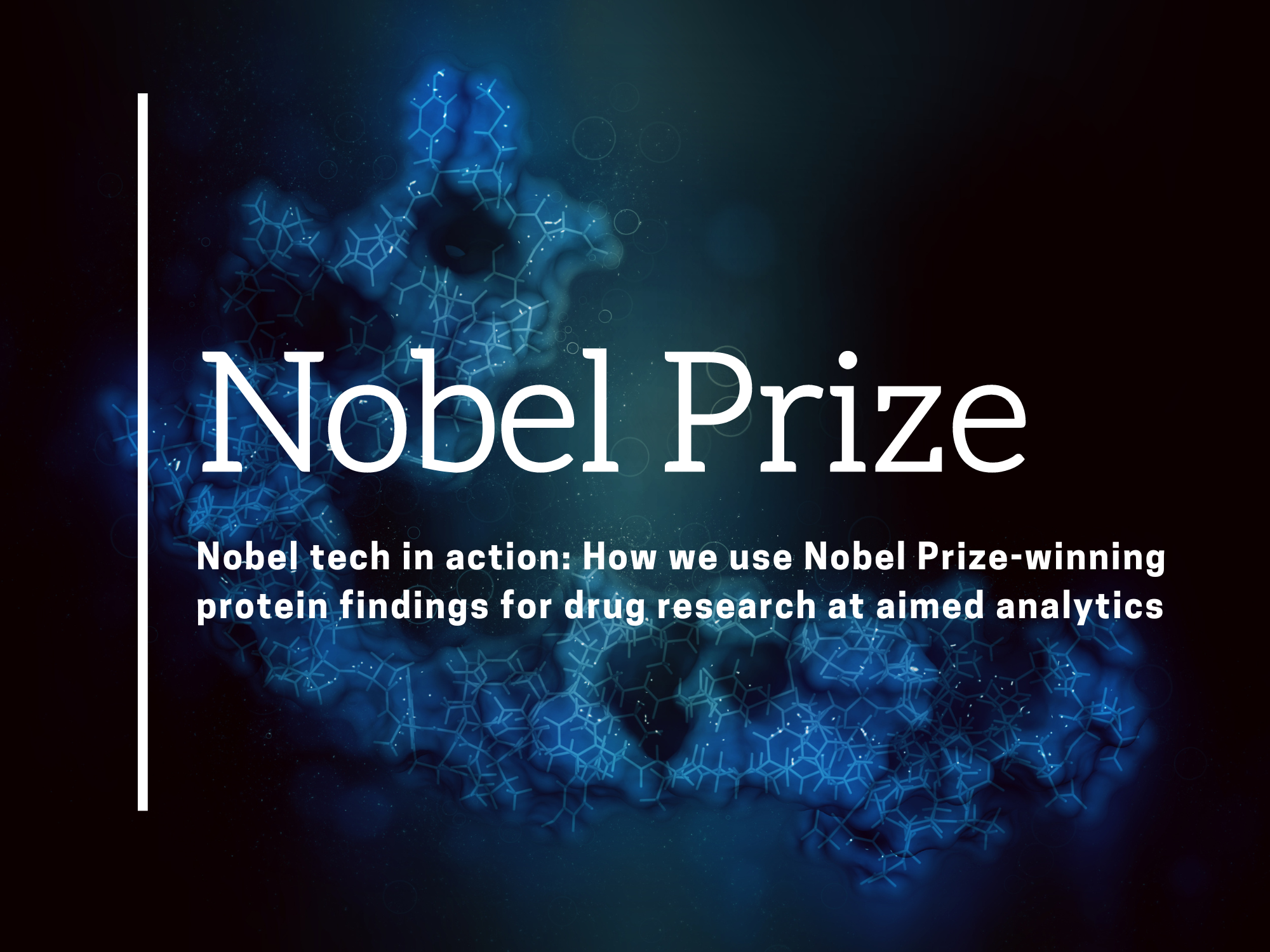
Nobel Prize 2024: Revolutionizing Protein Science
Discover how the 2024 Nobel Prize in Chemistry is unlocking the secrets of proteins, paving the way for groundbreaking advancements in medicine and environmental sustainability. Our company leverages this award-winning technology in drug discovery, transforming how we tackle diseases.
Revolution in Chemistry: Nobel Prize Awarded for Groundbreaking Protein Research
The 2024 Nobel Prize in Chemistry marks a pivotal moment in the field of biomedicine and data analytics, celebrating the innovative work of researchers who have fundamentally transformed our understanding of proteins.
This year's laureates, David Baker, Demis Hassabis, and John Jumper, have made significant strides in solving one of biology's most enduring puzzles: how proteins fold. Their discoveries not only deepen our comprehension of these essential biomolecules but also open up new avenues in drug discovery and environmental protection.
At a Glance:
Nobel Laureates: David Baker, Demis Hassabis, and John Jumper.
Achievement: Solving the puzzle of protein folding and designing new proteins.
Impact: Revolutionizing drug discovery, environmental protection, and more.
Technological Breakthrough: Use of AI for predicting protein structures.
Potential: Opening vast possibilities in medicine and sustainability.
The Mystery of Protein Folding Solved
A Biological Enigma
Proteins, the very essence of life, carry out a myriad of functions, from forming bodily structures like bones and skin to fighting diseases. Understanding how these molecules fold into their functional forms has been a long-standing quest in biology.
Breakthrough via AI
As the Nobel Committee for Chemistry describes:
 The second discovery concerns the prediction of protein structures (...) In 2020, Demis Hassabis and John Jumper presented an AI model called AlphaFold2. With its help, they have been able to predict the structure of virtually all the 200 million proteins that researchers have identified.
The second discovery concerns the prediction of protein structures (...) In 2020, Demis Hassabis and John Jumper presented an AI model called AlphaFold2. With its help, they have been able to predict the structure of virtually all the 200 million proteins that researchers have identified.
This AI-driven model, developed by Hassabis and Jumper, has cracked the code of predicting protein structures, a task once deemed insurmountable.
Designing the Proteins of Tomorrow
Innovations by David Baker
David Baker has complemented this achievement by pioneering methods to design new proteins, aimed at fulfilling specific functions. From crafting molecules that could potentially counteract pandemics to enzymes that degrade plastics, Baker's contributions demonstrate the vast potential of engineered proteins.
Environmental and Medical Applications
This ability to both predict and design protein structures heralds a new age in biotechnology. Our platform, which integrates data analytics in biomedicine, is set to benefit immensely from these innovations. Furthermore, tailored proteins can now be developed more efficiently, promising accelerated progress in creating new therapies and environmental solutions.

Bridging Chemistry and Biomedicine Through AI
The integration of artificial intelligence in protein research not only enhances our understanding of life's building blocks but also invites a future where bespoke proteins address global challenges in health and sustainability.
The implications of these discoveries are monumental for the field of biomedicine, particularly for companies like ours that are at the intersection of biomedical research and data analytics. The ability to predict protein structures and design new proteins opens up unprecedented opportunities in drug discovery. Our platform can leverage these technologies to accelerate the development of new treatments, making healthcare more responsive and effective.
Moreover, the environmental applications of these discoveries cannot be overstated. By designing proteins that can degrade pollutants or neutralize hazardous substances, we can tackle some of the most pressing environmental challenges of our time. This aligns with our company's commitment to leveraging biotechnology for sustainable solutions.
The Future of Protein Research
The work of Baker, Hassabis, and Jumper represents a significant leap forward in our ability to understand and manipulate the building blocks of life. As we continue to explore the vast potential of proteins, the integration of AI and biomedicine will undoubtedly play a crucial role in shaping the future of healthcare, environmental science, and beyond.
Our company stands at the forefront of this exciting frontier, ready to harness the power of these Nobel Prize-winning discoveries to innovate and improve lives. As we build on the foundation laid by these remarkable scientists, we are poised to unlock new possibilities in medicine, sustainability, and the exploration of the natural world.
In conclusion, the 2024 Nobel Prize in Chemistry is more than just a recognition of individual achievement. It underscores the transformative potential of interdisciplinary research and sets the stage for the next generation of scientific breakthroughs. Our mission aligns with this vision, as we continue to push the boundaries of what is possible with data analytics and biomedicine, inspired by the genius of Baker, Hassabis, and Jumper.
Join the Revolution in Biomedicine
Are you ready to discover the future of drug discovery with the help of Nobel Prize-winning technology? We'll show you new possibilities and help you harness the potential of proteins—and much more! Contact us today to find out more and become part of the revolution.
It's just a few steps to your data analysis. Let's find out what analytic solutions fit your research.